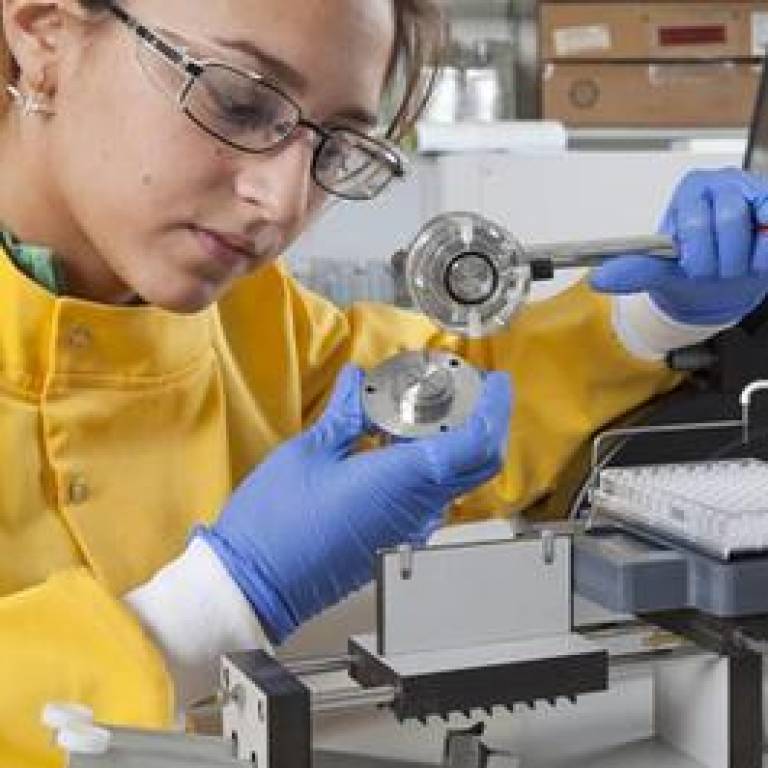Queen's Anniversary Prize awarded to UCL Biochemical Engineering
22 November 2013
In recognition of its "outstanding excellence" UCL Biochemical Engineering has been awarded a 2012-2014 Queen's Anniversary Prize for Higher and Further Education.

The Prizes are a biennial award scheme within the UK's national honours system. As such, they are the most prestigious form of national recognition open to a UK academic or vocational institution. The awards are presented every two years by The Queen, with The Duke of Edinburgh, in recognition of work by universities and colleges judged to be of world class excellence.
UCL Biochemical Engineering focuses on converting novel biological discoveries into commercial products in a safe, sustainable and cost-effective manner.
Recent achievements include collaborations with Moorfields Eye Hospital, where the department contributes to stem cell treatments for blindness, and with the UK Health Protection Agency, where staff have developed a method that could double the UK's capacity to produce anthrax vaccine.
In addition, with the international pharmaceutical company Merck, the department helped to create the manufacturing basis for the world's first vaccine for cervical cancer, Gardasil®.
We believe applying biological solutions to engineering principles has enormous potential to improve human wellbeing, and it is timely to have received this accolade and praise.
Professor Nigel Titchener-Hooker
The department is recognised world-wide as a centre for bioprocessing research and training. These activities have provided the engineering and skills basis for an entirely new industry based upon using living organisms to solve problems.
Head of UCL Biochemical Engineering, Professor Nigel Titchener-Hooker, FREng, said: "This award is a wonderful tribute to the dedication of the department and the potential of the discipline we pioneered. We are honoured by this recognition, and look forward to achieving even more for the UK and globally.
"We believe applying biological solutions to engineering principles has enormous potential to improve human wellbeing, and it is timely to have received this accolade and praise."
Work at UCL Biochemical Engineering is developed in close collaboration with a wide variety of end users, ranging from industrial manufacturers of pharmaceuticals to NHS clinicians.
Historical successes include the world's first process for semi-synthetic penicillin production, and pioneering studies on the large-scale use of proteins as catalysts for the production of drugs, including the first production of influenza anti-viral medication.
Professor Michael Arthur, UCL President & Provost, added: "This award is truly well deserved and reflects the exceptional research pursued by the department. Through its committed focus on applied research and strong clinical and commercial partnerships, UCL Biochemical Engineering has pursued a strategy which delivers real benefits to society. This award is not only a testament to the department's past successes, but a sure prediction of future achievement."
Image (top): A member of UCL Biochemical Engineering using an ultra scaled-down membrane device.
Media contact: Clare Ryan
Links:
 Close
Close

